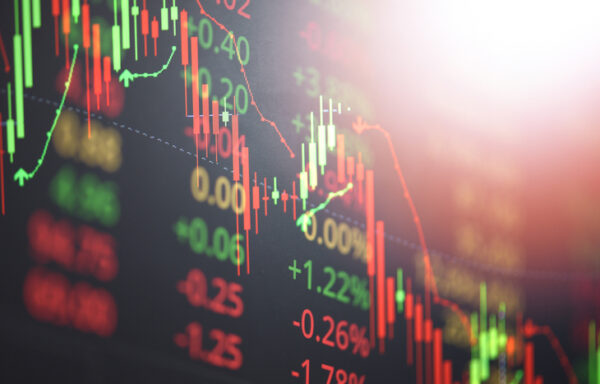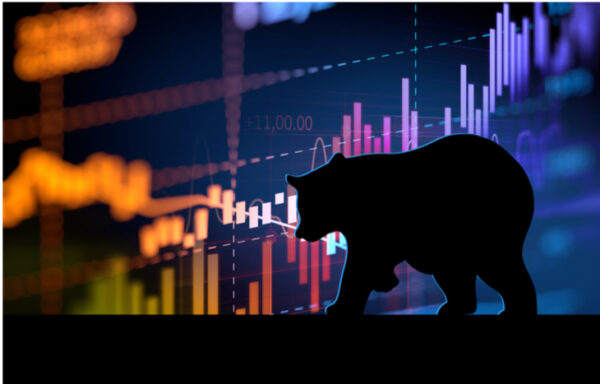Why Doing Good Is Good for Business
Can you do well by doing good?
Conspicuous consumption was all the rage in the 1980s. Now “conscious capitalism” is having its moment. Whether or not you choose to embrace it as an investor, you can’t deny the trend.
In August, the Business Roundtable broke 40-plus years of tradition, updating its Statement on the Purpose of a Corporation.
The Business Roundtable declared that “shareholder primacy” is no longer the primary purpose of a corporation, as had been the case since 1978.
Instead, executives from America’s largest corporations committed to lead their companies for the benefit of all stakeholders – customers, employees, suppliers and communities, as well as shareholders.
A total of 181 CEOs committed to the new statement of purpose. And 181 CEOs can’t be wrong…
What Jamie Dimon, Jeff Bezos, Tim Cook, Mary Barra and other signatories know is what BlackRock (NYSE: BLK) CEO Larry Fink has repeatedly said (and written):
To prosper over time, every company must not only deliver financial performance, but also show how it makes a positive contribution to society.
I know this may sound like left-leaning gibberish to some of you. But none of these CEOs are commies or socialists.
Fink’s point is that doing “good” is good business. And the trend toward what used to be called “socially responsible investing” is growing by leaps and bounds.
Globally, there was more than $30.7 trillion in sustainable investing assets at the start of 2018, up 34% versus 2016. In the U.S., there is nearly $12 trillion in assets focused on “impact investing,” up 44% from 2016.
These investors often follow the Principles for Responsible Investment developed by the United Nations to cover issues like environmental protection, labor standards and good corporate governance.
Historically, socially responsible investing focused on manufacturers of alcohol, tobacco and firearms. Oil and gas companies have more recently been in focus amid mounting concerns about global climate change.
Now pretty much every company, in every industry, is being viewed through a lens of ESG investing. (ESG stands for environmental, social and corporate governance.)
Complying with these standards can be costly for some companies. The question for executives and investors is whether the tangible short-term loss of “doing good” is worth the intangible benefit of being a good corporate citizen.
Twitter Tackles Political Ads, Facebook Punts
Consider the recent example of Twitter (NYSE: TWTR). CEO Jack Dorsey was widely praised for announcing that his company will no longer accept political advertising.
The praise continued despite the loss of potential revenue during the 2020 presidential election cycle.
Twitter’s new policy is widely seen as a knock on its much larger competitor Facebook (Nasdaq: FB). Last week, Facebook founder Mark Zuckerberg was repeatedly criticized for Facebook’s policy of allowing misleading ads.
Here’s Zuckerberg’s philosophy in a nutshell: Voters should have an opportunity to see if politicians choose to lie. Then, they can decide if they want to vote for a liar.
“I don’t think it’s right for private companies to censor politicians,” he said on the company’s conference call.
Zuckerberg’s view is startlingly simplistic. He is ignoring some critical facts:
- Many of us can’t always determine for ourselves what’s true, what’s false and what’s an opinion.
- Most people are honest and well-intentioned, and assume others are as well. That leaves them vulnerable to bad actors, including unscrupulous politicians and cybercriminals.That means that Zuckerberg’s choice to “run the ads as long as the checks clear” is a recipe for mass manipulation. Considering more than 40% of U.S. adults get their news from Facebook, I don’t think that’s hyperbole.
- More importantly, political ads don’t just come from America. In late October, Facebook said it had taken down four state-backed disinformation campaigns, three originating in Iran and one from Russia. And those are just the ones Facebook discovered.
I don’t see any reason why any American would want foreign governments interfering with our politics. Do you?
Writing on Twitter, of course, Dorsey declared…
This isn’t about free expression. Internet political ads present entirely new challenges to civic discourse: machine learning-based optimization of messaging and micro-targeting, unchecked misleading information, and deep fakes.
All at an increasing velocity, sophistication, and overwhelming scale.
This is about paying for reach. And paying to increase the reach of political speech has significant ramifications that today’s democratic infrastructure may not be prepared to handle.
I believe Dorsey is right and Zuckerberg is wrong on this. Our elections are too important – and our democracy too fragile – to give foreign elements virtually unlimited access to our political discourse.
I also believe that, in the long term, Twitter’s business will benefit and Facebook’s will suffer as a result of these choices.
“The controversy this creates far outweighs the very small percentage of our business that these political ads make up,” Zuckerberg said. “I expect that [2020] is going to be a very tough year.”
Still, Facebook shares rose about 1% last week, while Twitter’s lost 3.3%. (Notably, Facebook is a much larger company than Twitter and political advertising is a small percentage of revenue at both firms.)
Judging by the old rules – shareholders are all that matter – Facebook is the obvious winner here. Given the new focus on all stakeholders, I submit Twitter won this round.
The best investors are always looking ahead. If you’re really thinking about the long term, there’s no reason to bet against this growing trend of investors holding corporations to a higher standard.
[adzerk-get-ad zone="245143" size="4"]About Aaron Task
Aaron is an expert writer and researcher who formerly served as editor-in-chief at Yahoo Finance, digital editor of Fortune, and executive editor and San Francisco bureau chief of TheStreet. You may have also seen him as a guest on CNBC, CBS This Morning, Fox Business, ABC News and other outlets.
A prolific writer and commentator, Aaron is the former host of Yahoo Finance’s video program The Daily Ticker. He has also hosted podcasts for Fortune (Fortune Unfiltered) and TheStreet (The Real Story). His latest on-air passion project, Seeking Alpha’s highly rated Alpha Trader podcast, features top Wall Street experts dissecting the market’s latest news and previewing significant upcoming events. He also regularly provides analysis for the free e-letter Wealthy Retirement, which we will be republishing here on Investment U.






